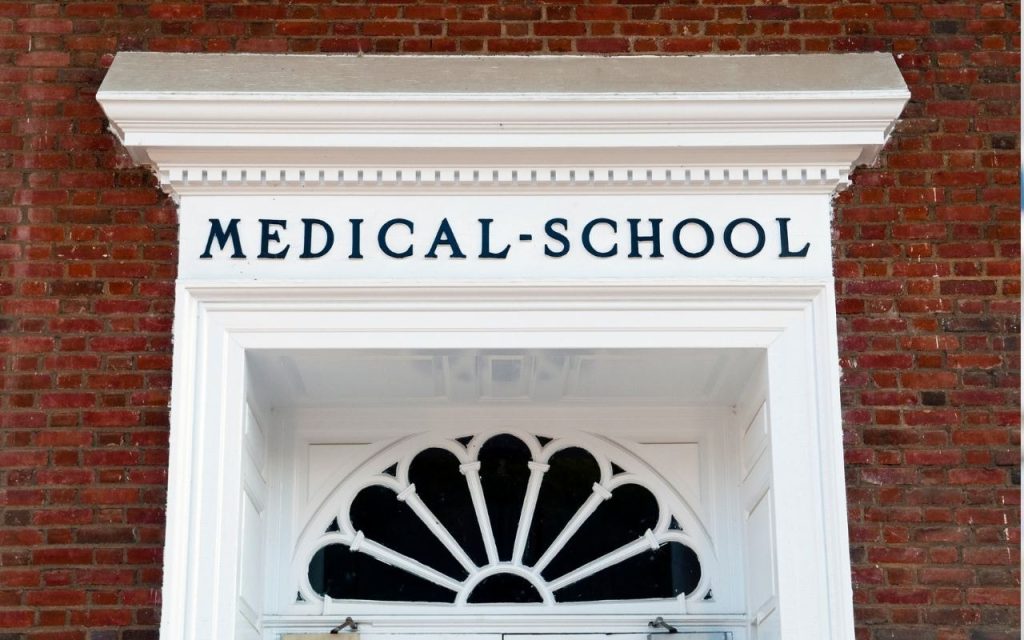
Hi, I’m Mary Ann!
With 10+ years of experience in financial aid, I’ve helped hundreds of students fund their education by awarding more than $100,000 in scholarships. I’m on a mission to make college education more accessible, so I’ve researched and curated this list of top medical school scholarships to assist you in attending your dream school. Read on!
My Methodology
With over a decade of experience in financial aid, I’ve developed a deep understanding of what makes scholarships effective and accessible for students. For this curated list of top medical school scholarships, I conducted in-depth research to ensure each opportunity meets high standards of quality and relevance.
Here’s how I evaluated each scholarship:
- Quality of Resources and Services (50%):
- Expertise and Qualifications (20%)
- Methodology & Approach (15%)
- Scope and Relevance (10%)
- Accessibility and Availability (5%)
- Trustworthiness (30%):
- Background and Credential Verification (15%)
- Transparency (5%)
- Data Security (5%)
- Safeguarding Policies (5%)
- User Experience (20%):
- Platform Usability and Navigation (10%)
- Ease of Use (10%)
- Customer Support Services (5%)
- Personalization and Customization (3%)
- Technological Integration and Compatibility (2%)
After spending hours researching various scholarship sites, I considered Bold.org scholarships due to their trusted reputation, transparency, and commitment to empowering students through tailored funding opportunities. Their platform simplifies the application process, making it an ideal choice for students seeking reliable financial support.
This list represents the best opportunities I found after extensive research to help make college more affordable and less stressful. Apply today to maximize your scholarship awards!

In medicine, it’s essential for students enrolling in medical school to receive as much financial aid as possible to reduce student loans. Carrying a mountain of debt isn’t something any financial advisor would recommend. Whether you are a graduate student, a premed major, or a PHG, you can get help to finance the career of your dreams. Considering the high amounts of debt, the amount of pressure they can add to the highly competitive, demanding career, and the continuous stress of being outstanding students, finding as many scholarships as possible becomes a necessity for medical students.
Many types of scholarships are available (including merit-based, need-based, service-based, minority scholarships, and others). As medical school typically requires good grades, make sure to apply for merit-based scholarships in particular! In this article, we have gathered and organized some of the best medical school scholarships to apply for before or during your school year.
Financial Gap for Some Students: Types of Scholarships for Medical Students
Let’s start by acknowledging that medical school is expensive. The good news is that scholarship opportunities continue to grow, addressing educational costs for all students. However, in some cases, such as minority students, the financial gap they often experience, along with the numerous medically underserved communities, is a stark reality that these scholarships aim to address. It’s a call to action, a reminder of our social responsibility to these communities and the importance of scholarships to address these gaps.
The question of whether a more diverse doctor population will have a positive outcome for serving medically underserved communities is not just an issue. It’s a crucial discussion that we all need to be part of. It’s an issue worth investigating, and your input is valuable.
According to AAMC data, it’s great to see an increase in the number of first-year medical students from historically underrepresented groups, like Hispanic, Latino, or of Spanish origin, and American Indian or Alaska Native. Despite the overall number of applicants to medical schools dropping by 4.7% for the second year, the number of matriculants rose by 1.2% from 2022-23 to 2023-24. Plus, total enrollment in medical schools grew by 1.6%. It’s encouraging to see progress in diversifying the field of medicine and see if this could also improve the number of underserved communities.
For more details, check out the full report from AAMC here.
Merit-Based Scholarship Programs
These scholarships recognize and reward students who excel academically, typically based on criteria like GPA and MCAT scores. If you’ve put in the hard work and long nights at the library and achieved strong results, this is a great option to consider.
Need-Based Scholarships
Awarded to students who demonstrate financial need, helping to make college more accessible to a wide range of students. No matter if you come from a family that cannot help you pay for college. There are plenty of options and opportunities for students in need.
Service-Based Scholarships
These scholarships require students to commit to working in a specific field or location after graduation. They provide financial aid and help address workforce needs in various sectors, such as teaching.
Minority Scholarships
Minority scholarships, available to students from underrepresented racial and ethnic minorities, play a crucial role in eliminating inequalities in society. They are an important tool in bridging gaps in access and representation in higher education, an issue that persists through generations and that many schools and organizations are working to eliminate.

Racial and Ethnic Minorities: Scholarships for Underrepresented Groups
These scholarships provide financial support to underrepresented minority medical students. Whether Hispanic, Indian, Native American, Asian, or part of the LGBTW+ communities, these scholarships are available and ready for medical students. Demonstrated leadership efforts, academic merit, or financial needs are some of the many reasons minority students could get school scholarships.
Full-Ride Scholarships for Medical School
Medicine is not just a competitive field but also an innovative, demanding, and rewarding career. This is why programs such as the David Geffen School of Medicine at UCLA offer full-ride scholarships to select students. These full-paid tuition programs can be very beneficial in eliminating inequalities and increasing accessibility through financial assistance.
The L.A. Care scholarship program also provides full-ride scholarships to students committed to working in underserved communities. Ethnic minorities are still the majority of underrepresented communities in both patients and doctors. The program has already awarded four scholarships to Estrella Ramirez, Monica Valle, Sergio Vazquez, and Lewis Williams, who are attending Charles R. Drew University of Medicine and Science.
Also, the NYU Grossman School of Medicine awards full-tuition scholarships to all students, regardless of financial need. This is a great opportunity for all students to benefit from a full-ride scholarship program without spending their own money or accumulating a mountain of debt.

How to Apply for Medical School Scholarships
Like any other scholarship, medical school scholarships require you to pay attention to the deadline and requirements, gather all the necessary information, and read all the information provided to ensure you don’t miss any important information.
Eligibility requirements vary from scholarship to scholarship, considering factors such as premedical status, year in medical school, specialty choice, academic achievement, service obligation, or affiliation with a specific organization. Remember to ask your medical school for and about unique scholarship opportunities at each school.
Remember to Be Specific
Preparation is the cornerstone of success in winning scholarships for medical school. By thoroughly preparing for the application process, you can answer questions about your identity and goals, open up a world of fellowship opportunities, and begin a well-considered, targeted search for financial aid to reduce educational costs.
Tips for Winning a Medical Education Scholarship
To secure your chances of winning a scholarship, you should look for niche scholarships that cater to your talents, experiences, or fields of interest. Students should consider their field of specialization, the communities they hope to serve, and where they hope to practice when applying for scholarships. You can start by answering these questions:
- What is my field of specialization? Think about what you’re studying and the skills you’ve developed. For example, if you’re majoring in environmental science, look for scholarships for sustainability initiatives or conservation efforts.
- What communities do I hope to serve? Consider the communities you are passionate about. To work with underserved populations, seek scholarships focusing on healthcare access, education, or community development.
- Where do I hope to practice after graduation? Reflect on where you envision your career taking you. If you plan to work in a rural area or a specific city, research scholarships that encourage professionals to serve in those locations.
- What unique experiences do I have that set me apart? Consider your personal journey, volunteer work, internships, or extracurricular activities. Scholarships often look for candidates with diverse backgrounds or life experiences, so don’t hesitate to highlight what makes you unique.
- Are there any cultural or personal interests I can leverage? If you belong to a particular cultural group or have a specific hobby, research scholarships celebrating these identities or interests. Many organizations offer scholarships to promote diversity and support students with shared experiences.
Medical school students should also consider applying for smaller scholarships, as they can add up over time and reduce student debt and interest capitalization without the highly competitive bigger scholarships.
Remember that attending medical school means you will be the person responsible for the lives of others, so really understand what you are committing to and why you are doing it. By deeply understanding your purpose, you will be able to succeed. Whether it is family medicine, surgery, or the world of research, organizing your goals and your inner purpose will tremendously impact your career.

Frequently Asked Questions About Medical School Scholarships
1. What Options Are Available for Medical Students Looking for Scholarships?
There are several options: Students can ask their academic advisor for scholarships and fellowships affiliated with their schools. Most scholarship opportunities include merit-based scholarships, which reward academic excellence based on criteria like GPA and MCAT scores, and need-based scholarships for those who demonstrate financial need. Overall, students need to explore different scholarship opportunities to reduce the financial burden of medical school.
2. How Can Loan Repayment Programs Benefit Medical Students, Especially Those from Racial and Ethnic Minorities?
A loan repayment program can be a significant financial relief for medical students, particularly those from racial and ethnic minorities who often face higher debt levels. These programs typically offer to repay a portion of a graduate’s student loans in exchange for working in underserved communities or specific healthcare fields for several years. Students can alleviate their financial burden but also contribute to improving healthcare access in communities that need it most. This creates a win-win situation: students can focus on their careers while positively impacting their communities’ health.
3. What Should Medical Students Keep in Mind When Applying for School Scholarships?
When applying for school scholarships, medical students should focus on being specific and targeted in their applications. It’s crucial to research eligibility requirements carefully (for example: are the scholarships aimed for undergrad, premed, or graduate students?), as different scholarships may consider factors such as academic achievement, service obligations, or affiliation with specific organizations. Students should also highlight their unique experiences, goals, and backgrounds in their applications. Additionally, a good reminder is that smaller scholarships should not be overlooked, as they can collectively make a significant impact on reducing overall student debt.
Find multiple scholarships that are easy to apply for in just a few minutes and won’t take forever to know if you are a perfect candidate.






